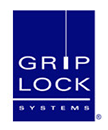Industry News
Fooled By A Fake UL Certificate
July 17, 2017
UL recently issued a statement on a Chinese lighting manufacturer using a fake UL certificate number on its LED tube. For those who are new to the industry, this might come as a surprise. The fact is that this is neither the first nor the last of such practice, and it didn't just happen to non-branded manufacturers. A few years back, a US public company got caught on using a valid UL certificate on a non-UL qualified products. This affirms that the UL certificate is only as good as you can verify it.
The fake UL certificate practice falls into four different categories:
1. Nonexistent UL certificate: In this case, the UL certificate number is not listed on UL certifications directory. The certificate number may be fabricated out of thin air to begin with. Or the certificate has been delisted due to expiration, cancellation, or retraction due to failing to meet new UL standards.
2. UL certificate mis-application: This is the case where a valid UL certificate is used on a non-UL qualified product. This is rather common when it comes to the LED tube where a Type A (ballast-compatible) UL certificate is used on a Type B (ballast bypass) LED tube. A dual-mode tube that can operate on ballast and line voltage but only has the UL certificate on either ballast OR line voltage is often the culprit of this UL certificate mis-application. Users often fail to understand that a dual-mode LED tube doesn't auto-qualify it for dual-mode UL certification, and quite often it isn't.
3. Using a component UL certificate for the lamp/fixture: This is another form of certificate mis-application where a manufacturer uses the UL certificate of a component of the product to mislead the customer as a valid UL certificate for the complete product. With LED lighting products, the UL certificate of the driver is used in place of the UL certificate of the complete lamp or fixture. Of course, they are not the same. A UL certified component doesn't qualify the entire lamp/fixture.
4. Fabricated UL qualified part number: This is the most subtle tactics of all and this is how it works. A manufacturer has two LED tube products certified by UL: A-B-C and A-X-Y, and they are selling a product A-B-Y on the market which is not qualified by UL. The product number A-B-Y looks very similar to the two UL certified products, A-B-C and A-X-Y, but it is neither of them. When presented with this situation, one electrical distributor in the Pacific Northwest stated that he didn't care since his customer didn't care. If you think that your distributor know what they are doing or they have your best interest in mind, you may want to think twice. "Trust but verify" is very appropriate here.
It turns out that it is rather easy to verify. Go to UL website: http://database.ul.com/cgi-bin/XYV/template/LISEXT/1FRAME/index.html", and type in the UL certificate number or the company name, and the matching UL certificate(s) will be listed. By reading carefully the fine print of the model number, you will know for sure whether the product is as good it is claimed. And that's all it takes.
Remember the UL certificate is only as good as you can verify. Sharing of this article is welcome and appreciated. Thank you - By Aleddra LED Lighting, [email protected].









































